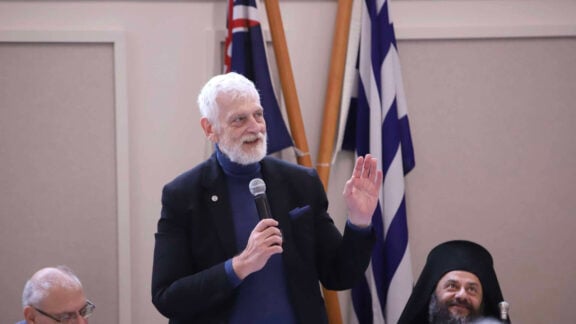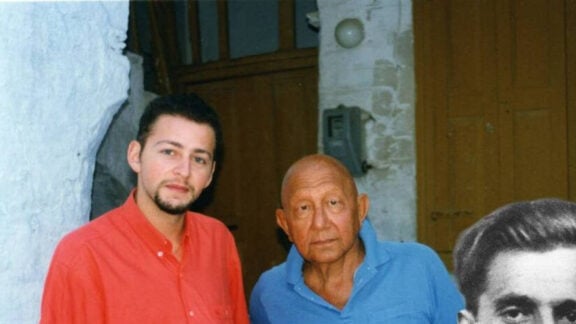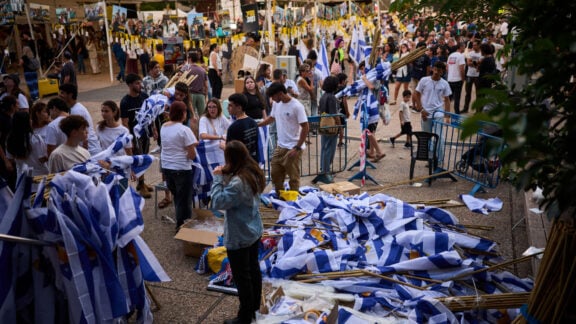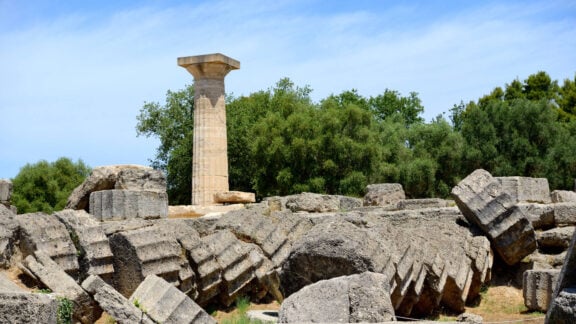Seidel begins his report with, “He’s trashed Turkey’s economy. He’s locked up all opposition. He’s playing a deadly game standing between East and West. Now President Recep Tayyip Erdogan is on the brink of triggering a war to boost his re-election chances.”
On the centenary of Turkish ‘democracy’ – a disputed term given the role the military has played since 1921 – Turkey will go to the polls to choose a new president on June 23.
Halil Karaveli wrote in Foreign Affairs in 2016, “The Turkish republic, established in 1923, was built on a weak foundation: throughout its existence, its population has been divided ethnically and along sectarian lines.”
The transformation of Anatolia into the heartland of a Turkish nation-state was bloody. At the beginning of the twentieth century, a fifth of the population—Armenians, Greeks, and Assyrians—remained Christian.
“The Ottoman Empire sanctioned genocide against these groups and forced their migration to create a homogeneous country. But even among those who were left, ethnic and religious divisions remained. The Kurds and the Alevis, a heterodox Muslim minority that has been oppressed for centuries, have resisted assimilation,” wrote Kareveli on FA.
Seidel writes that it may be the last time Turkish citizens get a chance to have a say in what path the nation takes.
As we have published in Neos Kosmos many times, Seidel reaffirms that President Erdogan “is in serious trouble.”
Mr Erdogan is in trouble regardless of rewriting the constitution, loading the courts with apparatchiks, jailing opponents, and whipping up nationalistic fervour.
“After two decades of uninterrupted political success, his Islamist Justice and Development Party (AKP) is polling just 30 per cent support,” Seidel writes.

Erdogan’s refusal to allow interest rates to rise has allowed inflation to explode to 80 per cent.
“The value of the Turkish lira has since collapsed. Now people are simply unable to pay their bills.”
The author of the report correctly assets that, “Erdogan desperately needs a distraction.”
“In typically autocratic fashion, he’s whipping up fear to justify a war.
He’s just not sure against whom it should be.”
The Turkish president is manufacturing border crises with NATO ally Greece.
“Territorial waters, drilling rights and the future of Cyprus are all trigger points with this ancient foe.”
Greece has accused Turkey of “pushing forward” migrants to put pressure on the EU, despite having agreed to stop the flow of refugees in exchange for billions of euros in aid in a landmark 2016 deal.
At the height of the refugee crisis in 2015, a million migrants from Syria, Iraq and Afghanistan arrived in Greece, mostly through Turkey.
The Kurdish minority in Turkey and surrounding countries are the next target. Despite the Kurds garnering international acclaim for a successful stand against Islamic State, Erdogan paints them “as separatists, terrorists and outsiders.”
And then there’s neighbouring Syria where many of the mass of refugees come from, and Erdogan is proposing to send in his tanks to resolve both issues with a single blow.
Each option is costly.
A catastrophic and unthinkable war with Greece “would trigger the NATO alliance against Turkey.”
“Its relationship with Europe and the United States would evaporate. And sanctions would be the least of Erdogan’s worries.”
A war with Syria would topple Turkey’s balancing act with Russia.
“Putin has been keen to use Erdogan as a wedge within the Western alliance. He’s offered desperately needed cash in return.”
Seidel says there’s “a third option: Making elections irrelevant” and titles this option a “Rules-based disorder”
The news.com.au journalist writes that “Erdogan paints himself as a protector of the people. Even if he must protect them from themselves.”
“This tactic, which he has utilized many times before, is an embodiment of devlet baba (or the Turkish concept of the state as a father),” Istanbul-based analyst Erin O’Brien writes in Foreign Policy.
“Under this logic, the head of state can be flawed, corrupt, or make extreme decisions and still be trusted because he is believed to be doing so in the name of the family — the Turkish populace.”
In 2016 a failed military coup permitted Erdogan to declare a state of emergency and detain some “110,000 people from opposition parties, media, and academia.”
The legal sector, military and police received selective attention – as did ethnic-religious minorities and up to 50,000 were charged.
Since 2016, Erdogan has concreted these state-of-emergency powers into perpetuity. “And he continues to seize every opportunity to lock up any voice of opposition,” writes Seidel.

Snem Adar from Center for Applied Turkey Studies in Berlin wrote in DW, “Turkey today is a prime example of increasing authoritarian practices.”
“Since the late 2000s, the country has steadily moved away from the rule of law and effective separation of powers … The demise of Turkish democracy is arguably one of the most disappointing examples of a global trend.”
Constantinople’s (Istanbul) popular mayor and potential opposition presidential candidate Ekrem Imamoglu was recently convicted of “insulting public officials”.
“It’s just one of many new laws the AKP has pushed through parliament that can be used as weapons against any form of criticism” says Seidel.
Imamoglu faces two years behind bars.
Over 100 senior members of the People’s Democratic Party (HDP) now face terrorism-related offences.
The pro-Kurdish group has a real chance of holding the balance of power between the AKP and an evolving alliance of opposition parties.
“The trigger was the bombing of a popular Istanbul shopping strip on November 13. Six people were killed, and another 81 were injured.”
The Turkish government blamed the Kurdistan Worker’s Party (PKK). The PKK denied it.
“But then he did what he typically does best — turned a crisis to his advantage,” argues Chatham House strategist Timothy Ash.
NATO is nervous…
Turkey a NATO member and an applicant to the European Union, a process now in deep freeze.
Yet, Erdogan has refused to impose sanctions against Russia for invading Ukraine while selling combat drones to the defenders in Kyiv.
But both sides are equally crucial to Erdogan.
Russia backs Syria.
Greece is part of NATO.
If Erdogan wants war with either, he’ll face consequences. The question Seidel asks, as all Greeks do, “would the international backlash – whatever its source – be worth it?”
Seidel does make a rather strange mistake in his report calling the conflict between Greece and Turkey ancient, even suggesting it has “prehistoric origins.”
Historically the conflict starts in 1453 when the Ottoman Empire colonised the Byzantium and took over Constantinople. The more modern seeds of this conflict were planted in the 1821 Greek Revolution and the rise of the modern Greek and Turkish states.
The modern Greco Turkish, the 1914 genocide of the Armenians, then Pontian Greeks, and the 1922 Great Catastrophe, when over 2 million Hellenes were ethnically cleansed by the new forces of modern Turkey, and the burning of Smyrna (Izmir) – are the real kernels of this animosity.
“We can come suddenly one night … if you Greeks go too far, then the price will be heavy,” Erdogan threatened late last year.
“The islands you occupy do not bind us. We will do what is necessary when the time comes.”
As Seidel reminds readers, “Greece and Turkey are members of the NATO alliance, But NATO’s response to any conflict between the two is clear-cut.
An attack on any of its members is an attack on all.”
“Any member that becomes an attacker will be left to its own devices.”
Seidel says that “Europe needs Turkey.”
The historic links between Germany and Turkey are clear, as was their alliance in World War I and Turkey’s neutrality in World War II.
“And Turkey needs Europe.”
Seidel quotes Australian National University Turkish Studies expert Burcu Cevik-Compiegne.
“This is exemplified by the refugee deal that positions Turkey as Europe’s gatekeeper,” says
“It partly explains the reluctance of Europe to impose sanctions on Turkey when Erdogan escalated the Greek-Turkish border crisis in 2020, sending a flood of refugees into Europe.”

Syria – a fighting chance?
Erdogan swore last year that his army would “come down hard on the terrorists … at the most convenient time”.
This was derived amid widespread missile strikes against Kurdish communities in Syria and Iraq in retaliation for the Istanbul bombing.
Erdogan insisted this was “just the beginning” of a major new operation.
In Syria, the United States, Turkey, and even in Russia, fears are mounting that Turkey could launch a full-scale military operation on its embattled neighbour at any moment.
On November 27 2022 Turkish Defence Minister Hulusi Akar told military commanders on the Iraqi border that Turkey was ready to “complete the tasks” of his government’s operation against the People’s Defense Units (YPG) in Syria, indicating Turkey’s readiness to launch a ground offensive in Syria.argues Erin O’Brien wrote in Foreign Policy.
“Second, a conflict would provide a rallying cry for more nationalist elements of the Turkish population. Erdogan, at the helm of an invasion of Syria, could project himself as the protector of the country from Kurdish terrorists in the lead-up to the elections.”
Seidel writes that “Preparations appear to be afoot.”
Putin remains a problem.
Erdogan urgently needs his cash to combat inflation.
Moscow is using Turkey to circumvent international sanctions. Ankara naturally takes a cut.
“Russia also has paid billions upfront for the construction of a new nuclear power station. It’s offering to turn Turkey into an international energy hub. It’s offering cut-price oil and gas – and stolen Ukrainian wheat,” writes Seidel.
In return, Erdogan is making NATO look weak by delaying the acceptance of Sweden and Finland’s membership of the alliance.
But invading Syria to crush the Kurds would upset this lucrative apple cart.
“Economic sunshine (or at least the absence of a storm) will help Erdoğan, as will his claim that in a region of instability and insecurity, Turks need his acumen in managing a complex geopolitical mix to Turkey’s advantage,” argues Ash. “Vote for experience, he will say, and shun my inexperienced rivals.”









